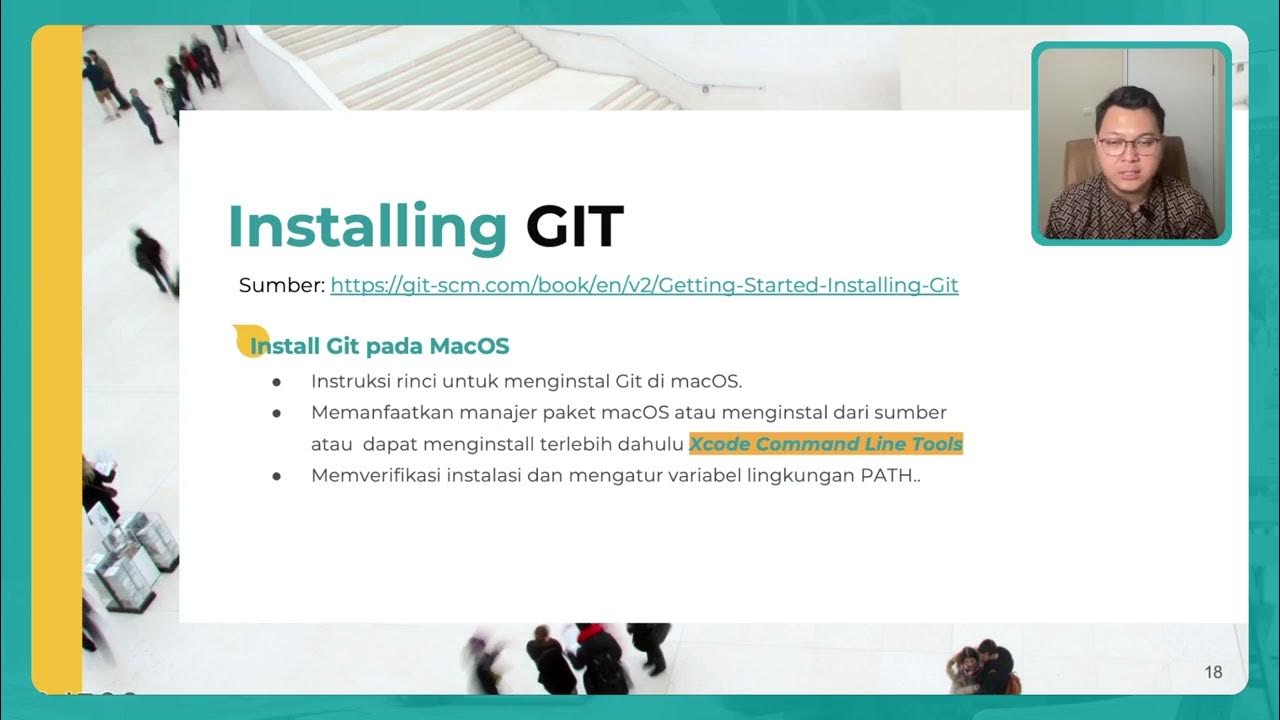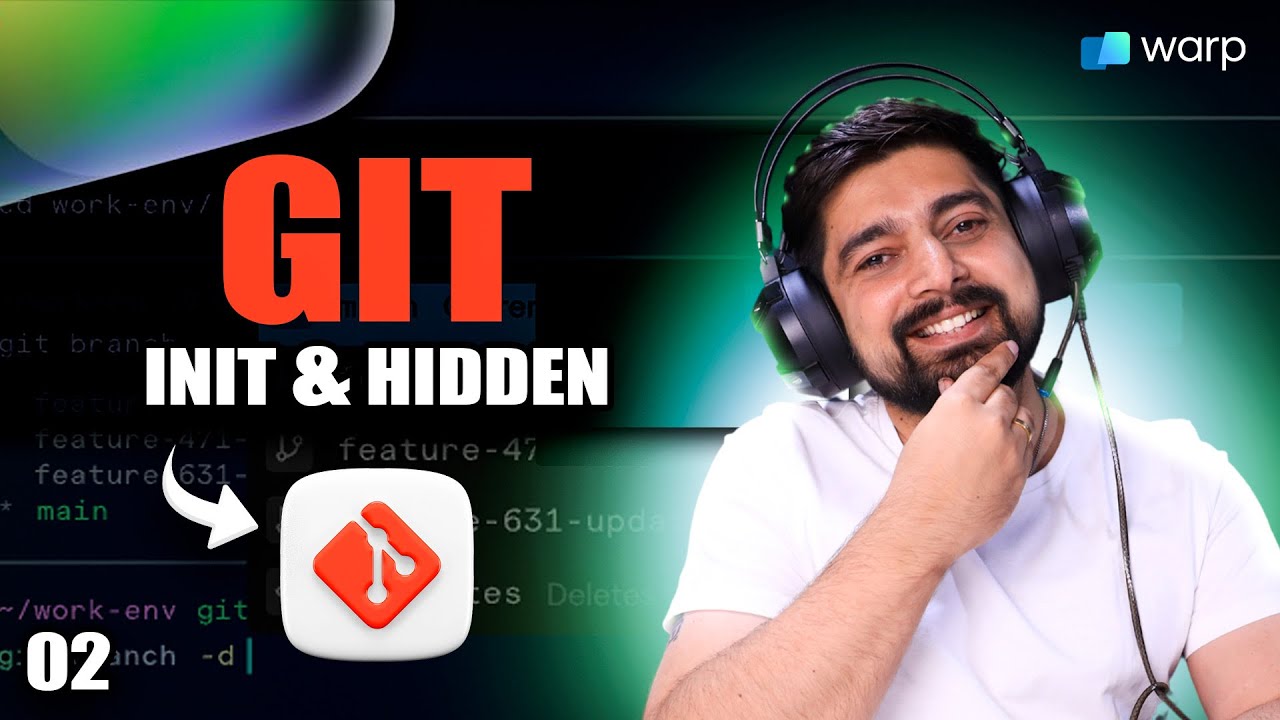What is Version Control? - Git Guides (2020)
Summary
TLDRThis video introduces Git and its fundamental concepts, explaining the importance of version control for collaborative projects. Joel, from Atlassian, highlights how version control tracks changes, keeps backups, and enables efficient team collaboration. The video also compares centralized and distributed systems, explaining why distributed systems like Git are faster, safer, and more flexible. Viewers are introduced to key Git concepts like repositories, the working and staging areas, and how to manage project history. The series promises to guide viewers through hands-on Git usage, making it accessible for both beginners and experts.
Takeaways
- 😀 Version control is like writing a collaborative book, helping you make changes to files without losing track of the flow.
- 😀 Git is a distributed version control system (DVCS), meaning the entire project and its history are stored on each team member's machine.
- 😀 Unlike centralized systems, Git doesn't rely on a server for every change, making it faster and more efficient.
- 😀 Git provides backups of the entire project, so if something goes wrong, the project is always recoverable.
- 😀 You can use Git to experiment with new features without affecting the main project, ensuring a safe environment for testing.
- 😀 Git allows multiple team members to work on the same files simultaneously, offering tools to merge changes effectively.
- 😀 Centralized version control systems (CVCS) store the project on a central server, requiring constant server access for updates.
- 😀 Git's data model ensures that you can always rebuild the entire project from its parts, keeping the project history intact.
- 😀 Git has a staging area where you can organize and preview your changes before committing them to the main project.
- 😀 Git is free and open-source, allowing anyone to use, download, and contribute to it, making it ideal for open-source projects.
Q & A
What is version control, and why is it important?
-Version control is a system that helps you manage changes to files over time, allowing you to track and back up your work, collaborate with others, and avoid losing progress. It's crucial because it maintains the history of changes and provides a way to recover from mistakes.
How does version control benefit collaboration among developers?
-Version control enables multiple developers to work on the same project without conflicts. It allows them to make changes, review each other's work, and merge their contributions while keeping the project organized and in sync.
What is the difference between centralized and distributed version control systems?
-In a centralized version control system, the project is stored on a central server, and each user submits changes to it. In contrast, a distributed version control system like Git stores the entire project and its history on every developer’s machine, making operations faster and more flexible.
Why is Git faster compared to centralized version control systems?
-Git is faster because most operations are performed locally on your machine, without needing to access a central server for every change. This minimizes the dependency on network performance and speeds up tasks.
What does the staging area in Git do?
-The staging area in Git is where you organize and review the changes you want to commit. It allows you to prepare files by selecting which ones to include in your commit and leaving others out, ensuring that you only save relevant changes.
What is the role of repositories in Git?
-A Git repository (repo) is the central storage for your project. It contains all your project files and their entire version history. When you make changes, they are tracked in the repository, enabling you to backtrack, compare, and collaborate efficiently.
What is a commit in Git?
-A commit in Git is a snapshot of your project at a specific point in time. When you commit changes, you save them to the repository along with a message explaining what was changed. Commits allow you to track the history of a project.
Why is Git described as distributed, and what are the advantages?
-Git is distributed because every developer has a full copy of the project, including its entire history, on their machine. This setup improves speed, provides backup copies, and allows work to continue offline without needing a network connection.
How does Git help in situations where multiple developers work on the same files?
-Git allows multiple developers to work on the same project simultaneously by enabling them to work in separate branches. When their work is ready, Git helps merge changes while allowing developers to resolve conflicts where necessary.
Why is Git important for contributing to open-source projects?
-Git is important for open-source projects because it is a free and open-source tool that allows developers to contribute easily. Its distributed nature ensures that contributors can work independently and offline, and all changes can be tracked and managed effectively.
Outlines

This section is available to paid users only. Please upgrade to access this part.
Upgrade NowMindmap

This section is available to paid users only. Please upgrade to access this part.
Upgrade NowKeywords

This section is available to paid users only. Please upgrade to access this part.
Upgrade NowHighlights

This section is available to paid users only. Please upgrade to access this part.
Upgrade NowTranscripts

This section is available to paid users only. Please upgrade to access this part.
Upgrade NowBrowse More Related Video

Git Tutorial for Beginners: Complete GitHub Guide with Version Control Commands 2025

O QUE É GIT E GITHUB? - definição e conceitos importantes 1/2

GIT para programadores INICIANTES | Introdução e fundamentos ( O que são GIT e GITHUB? )

Sub Topic 2

Master Git Init: Unlock the Secrets of the Hidden .git Folder in 20 Minutes

O que é Git e GitHub? - @Curso em Vídeo HTML5 e CSS3
5.0 / 5 (0 votes)